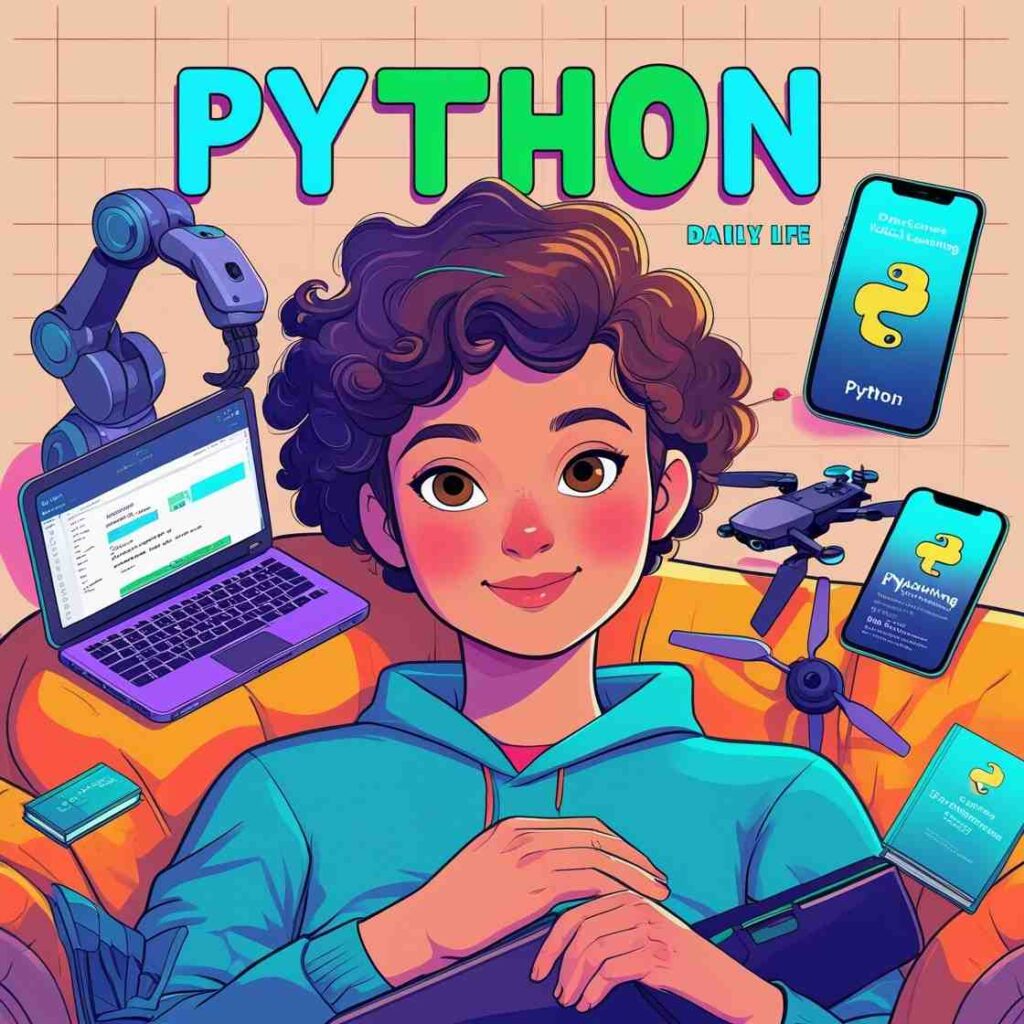In today’s world, programming languages are everywhere, making tasks easier and more efficient. Among them, Python has risen to the top as one of the most versatile and user-friendly languages. From automation to data analysis, Python has a broad range of applications that can simplify and enhance many aspects of daily life. Whether you’re an aspiring programmer or just someone interested in how programming impacts everyday tasks, Python is a language worth learning.
1. Automation of Everyday Tasks
One of the most practical uses of Python is automation. Instead of manually performing repetitive tasks, Python allows you to create scripts that perform them automatically. For example:
- Sending Emails: Python can be programmed to send personalized emails to a list of recipients, saving time in marketing or daily communication.
- File Organization: You can use Python to rename, move, or even delete files based on certain criteria, keeping your system organized effortlessly.
- Web Scraping: Need to gather data from a website? Python can help you scrape information like prices, reviews, or product listings, saving you time from manually browsing.
Python makes these tasks quick and simple, allowing you to focus on more important aspects of your day.
2. Data Analysis and Visualization
Python is often referred to as the go-to language for data analysis and visualization. With libraries like Pandas, Matplotlib, and NumPy, Python allows anyone—from students to professionals—to analyze large sets of data and visualize trends and patterns.
- Business Decisions: Business owners can use Python to analyze sales data, customer feedback, or market trends, helping them make more informed decisions.
- Finance Management: Python can help individuals track and analyze their expenses, investments, and savings over time, offering a clear picture of their financial health.
- Weather Forecasting: By gathering weather data and applying Python’s analysis tools, weather predictions can be created with reasonable accuracy.
Data-driven decision-making becomes much easier with Python, whether you’re managing a small business or organizing personal data.
3. Building Websites and Web Applications
Python is a top choice for web development. Frameworks like Django and Flask make building secure and scalable websites a breeze. Whether you want to create a personal blog, an e-commerce store, or a data-driven website, Python has you covered.
- Personal Websites: Python’s simplicity allows even beginners to create functional and attractive personal websites.
- E-commerce Platforms: If you’re interested in setting up an online store, Python frameworks provide the structure and tools needed to handle user authentication, payments, and inventory management.
By using Python, you can save both time and money while building a robust online presence.
4. App Development
Python’s versatility extends to mobile and desktop applications as well. Libraries like Kivy allow you to create cross-platform applications, which means that you can develop software for both Android and iOS with the same codebase.
- Mobile Apps: Python can be used to develop simple mobile apps that can help you with tasks like budgeting, to-do lists, or fitness tracking.
- Desktop Software: From simple calculators to image editors, Python is capable of building desktop applications that make your work easier.
Creating apps using Python is an ideal choice for individuals looking to develop functional applications without diving into more complex programming languages.
5. Machine Learning and Artificial Intelligence
Machine learning and AI are hot topics in the tech world, and Python is at the heart of this revolution. Libraries like TensorFlow, Keras, and Scikit-learn make Python the ideal language for building and training machine learning models.
- Recommendation Systems: Platforms like Netflix and Amazon use machine learning algorithms to recommend products or shows based on your preferences. You can implement similar systems using Python.
- Natural Language Processing (NLP): Python is widely used in chatbots and voice assistants. By applying NLP, Python helps machines understand and respond to human language.
- Image Recognition: Python is also used in facial recognition and object detection systems, making it valuable in security applications.
If you’re fascinated by AI, learning Python is the first step toward building intelligent systems that can perform tasks traditionally done by humans.
6. Creating Games and Entertainment
Python isn’t just about serious business tasks; it can also be fun! Using libraries like Pygame, Python allows you to create games and multimedia applications.
- Game Development: Whether you’re building a simple 2D game or experimenting with interactive storytelling, Python offers a low barrier to entry for budding game developers.
- Multimedia Projects: Python can also be used for processing audio and video files, making it ideal for creating simple entertainment tools.
For hobbyists or developers looking to explore the world of game development, Python is a fantastic starting point.
7. Home Automation and IoT
The rise of smart homes and the Internet of Things (IoT) has brought Python into everyday household tasks. With devices like Raspberry Pi and Arduino, Python can control smart lights, thermostats, security cameras, and more.
- Smart Homes: Python can be used to control and automate your lights, locks, and heating, making your home smarter and more energy-efficient.
- IoT Devices: Python can interact with IoT sensors and devices, allowing you to monitor things like temperature, humidity, and motion, all from your phone or computer.
By integrating Python into your home setup, you can streamline your daily routines and enhance convenience.
8. Educational Tool
Python is one of the most popular languages taught in schools and universities because of its simplicity and readability. It’s widely used to teach programming concepts and computer science fundamentals.
- Learning to Code: If you’re new to coding, Python is often the recommended starting language due to its simple syntax and versatility.
- Teaching Math and Science: Python can be used to solve math problems, simulate experiments, and analyse data in educational settings, making it an invaluable tool for students and educators alike.
Python opens up endless learning opportunities for people of all ages.
Conclusion
Python has become a powerful tool in the everyday life of individuals and businesses alike. Whether you’re automating mundane tasks, analysing data, or building a website or mobile app, Python is flexible enough to handle it all. Its simplicity and readability make it accessible to beginners, while its robust set of libraries and frameworks make it powerful enough for professionals.
By learning Python, you’re not just gaining a programming skill—you’re unlocking a world of possibilities that can enhance your personal and professional life. So, if you haven’t already, consider diving into Python and start leveraging it for your everyday needs!


